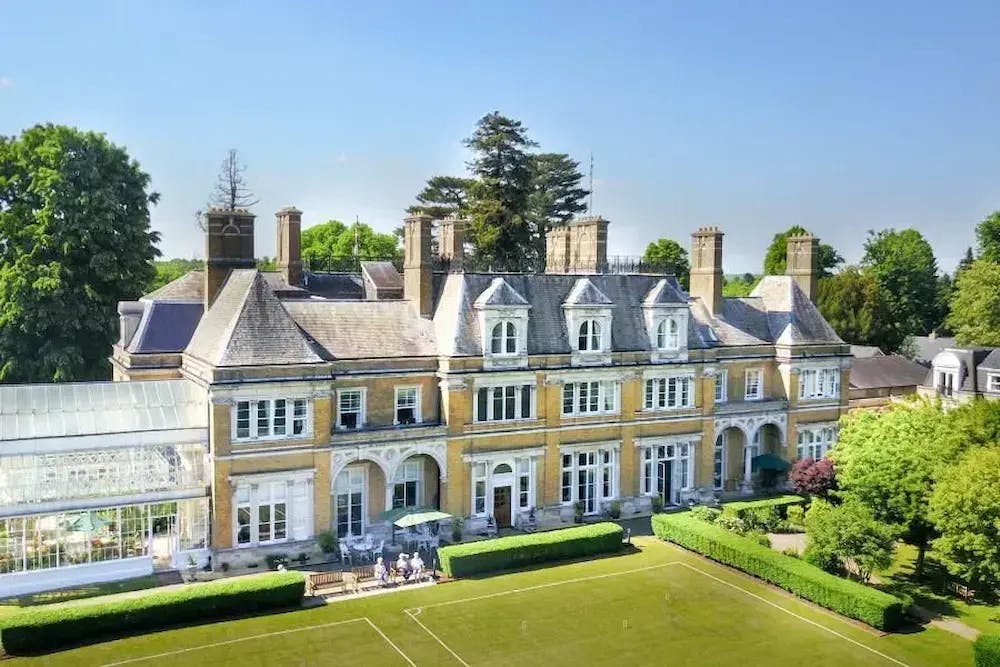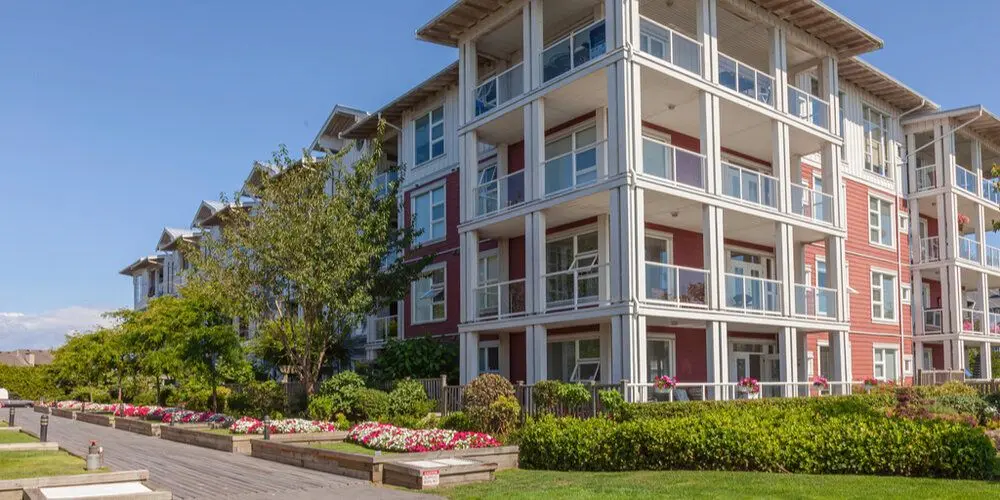What is Retirement Living? Comfortable & Luxury Homes

Estimated Reading Time: 10 minutes
When you retire, you have all the time in the world to enjoy everything you love the most. Coming to the end of your working life is a pivotal moment, it’s a new chapter waiting to be read.
If you’ve been wondering where to spend this next chapter, you’re in the right place. We’re going to be talking about all things retirement living so you can find out if it’s the right place for you to spend your twilight years.
Where would you like to live?
Browse the best retirement homes near you through Lottie.
What is Retirement Living?
Retirement living is a community-based way of living that means you can stay active and social in your new way of life. It also ensures you are safe and have the right help at hand should you need it.
Retirement living aims to put an end to the traditional assumptions of retirement and instead promotes a positive, safe and comfortable environment for the next stage of your life.
Retirement living is becoming more and more popular in the UK and is quickly becoming the go-to for those whose working lives are coming to an end. It allows you to enjoy all the desired facilities, surroundings and communities all within one village.
Who is it Suitable For?
Retirement living is typically suitable for those aged over 55 or 60 who are looking to live an independent life in their very own space in a community-based environment. Due to this, they are great for those who live alone and thrive off socialising with others.
Retirement living can also be great for couples who want to remain living together when one or both are living with needs that require care. Some retirement communities offer assisted living or care which makes this possible.
What are Retirement Villages?
Retirement villages provide purpose-built, high-quality housing for those looking to live independently in a secure and enjoyable environment after retiring. Typically, they offer a range of different styles of accommodation, from houses to apartments to retirement bungalows, there are a plethora of retirement villages across the UK to choose from.

When you retire, you deserve a life of luxury, which is usually promoted by most retirement villages. Many retirement villages boast a multitude of luxury leisure facilities such as swimming pools, restaurants, bars and an abundance of social activities for residents to engage in.
Most villages have their own forms of security such as passes or codes that are required to enter, creating a safe and secure environment to create peace of mind for residents. Residents are usually also required to be in charge of their own cleaning and bills however, staff tend to take care of the maintenance of the properties as a whole.
Maintaining independence
The independence that comes with retirement living is one of the most attractive features to residents. Aside from the staff who look after the general maintenance and security of retirement villages, living in this setting allows for the same amount of independence as living alone.
Whilst retirement villages are known for promoting healthy and active lifestyles, you have complete control over what you choose to do and when you do it. That being said, in a retirement village, you will have neighbours who you must be considerate of.
Level of care
Whilst retirement villages are typically known for living independently in a community environment, it is possible to receive care in a retirement village. This is dependent on the village that you choose as some employ care workers to provide care for residents, this will of course come at a cost for the resident. How much care you want is completely down to you and your needs.
Some retirement villages offer assisted living, this is where you can still maintain your independence but benefit from support for tasks such as washing, dressing or taking medication. If you are thinking about moving to a retirement village, it’s important for you to think about what support you need, and what support you may require in the future.
Social life
Retirement villages typically have excellent activity programmes jam-packed with social activities to keep residents engaged and active once their working life is over. Activities normally include quiz nights, arts and crafts, meals out, games nights and light exercise.
Of course, these activities are completely optional and they are normally organised by residents themselves, so if you have any ideas, don’t hesitate to give suggestions. Friendships are easily formed in retirement villages, which allows you to organise your own activities and outings such as shopping, fishing, gardening or day trips.
Whilst retirement villages are home to independent living spaces, there are normally plenty of communal areas where residents can socialise and relax together. Most villages boast facilities such as restaurants, pubs, libraries, activity rooms, gyms and even swimming pools.
We can help you find the perfect UK retirement home. Use our free service to filter by location, price, the facilities available, purchase type and more!
Buying or renting
Depending on the location and type of package that you decide on, the fees at retirement villages can vary significantly. Typically, buying a property is common among retirement village residents as it tends to be financially practical due to residents often downsizing. However, more recently, it is becoming more and more popular for retirement village developers to offer renting as an option for residents. With this in mind, be sure to check out our article highlight some of the best retirement rental properties in the UK.
What to take
As you are moving into your own home within the retirement village, you will be able to furnish and decorate your new abode how you like. However, it’s important to note that you will more than likely be downsizing, so it might be a good idea to sell, donate, store or pass some of your furniture on to close ones in the moving process.
It’s also common for pets to be allowed to move in with you to your new retirement home. Of course, you will have to speak with the salesperson upon viewing your property to ensure that your four-legged friends are able to join you.
Pros and Cons
Pros
Independence - You get to live this next stage of your life with complete independence in your own home
Socialisation - Making friends with like-minded people is a beautiful feature of retirement villages
Amenities - Most retirement villages are home to luxury social and leisure facilities for residents to enjoy
No repairs or maintenance - Staff are usually on hand to deal with this
Security - Living in a retirement village may be safer than living on your own
Stay together - Retirement living allows you to live with your partner who may have different care needs to you

Cons
Cost - You will end up paying more for luxury. Homes within retirement communities do tend to be more expensive than those on the open market. There will likely be a monthly service charge too
Service charge - Most retirement villages charge monthly or annual fees to cover maintenance and facilities costs. These costs can be rather large, so make sure you are aware of them before making your decision
Lack of diversity - For some, living in an environment exclusively for older people may not be for them
Downsizing - Sometimes, downsizing may not be something you are willing to do as you may not have enough space for all your personal belongings
Limited care - As we’ve already said, not all retirement villages provide nursing or medical care
Hidden costs - There are a lot of hidden costs when it comes to retirement villages, you can read more on this below
Hidden Costs
Something that should be taken into consideration before moving into a retirement village is the hidden costs that you may be hit with. Here is a list of the potential costs you could face living in one of these state of the art villages:
Maintenance fees and service charges
When living in a retirement village or warden controlled housing, you will be required to pay monthly or annual fees to cover the costs of maintenance of the entire property. The cost of these fees can vary for each village so it’s worth asking before you sign up for anything.
It’s also important to note that council tax and other utility bills are paid for separately and you should factor these into your budget.
Event fees
When retirement properties are sold on a leasehold basis, the owner is often required to pay a fee for ‘events’. These events include selling, sub-letting or transferring ownership of the property.
Event fees can also go by exit fees or deferred management fees, they are additional charges which you would not be typically be expected to bay with a standard property.
Before you sign any leasehold contract, make sure you are aware of these fees. It’s handy to look out for companies that are signed up to either The Association of Retirement Housing Managers, The associated Retirement Community Operators or the National House Building Council. These are codes of practice that are designed to give residents better protection regarding events fees.
Conditions of sale
Usually, retirement apartments or houses get sold due to the resident passing away or moving into full-time residential care. When selling the property, you tend to have the choice between using an estate agent or an in-house sales service. Until the property is sold, the service charge is typically required to be paid, so if the sale takes a while, bills can build up.
Retirement Living vs Care Homes
The main reason to go into a residential care home is so that you can receive 24-hour care. Care homes typically provide dementia, respite, nursing and residential care to those who need it. Whilst some retirement villages can provide care at an extra cost and, likely, the care won’t be as comprehensive.
Another difference between living in a retirement village and living in a care home is that you actually own your home in a retirement village.
This is either through buying, part-exchanging or renting the property. This means that you are able to bring all of your home comforts such as furniture, decor and even your furry friends are welcome to join you!
Retirement Living vs Sheltered Housing
Retirement housing and sheltered housing are similar as they are both designed for residents to maintain their independence once they reach an older age. However, there are a few significant differences between the two.
As we’ve already spoken about, retirement villages tend to be a more expensive option as they provide luxury living to those at those at retirement age. They are aimed at those who want to maintain their independence and enjoy their post-retirement life. However, they may not be the best option for those who require a higher level of care.
Sheltered housing is typically provided by local councils, housing associations or charities that focus on providing personal care services and support for those who still want to live independently.
Retirement Village Companies
There are many different reputable companies across the UK that offer retirement living schemes, here are just a few:
How to Choose a Retirement Village
Founded in 2012, The Associated Retirement Community Operators (ARCO) is the main body representing the Integrated Retirement Community sector in the UK. You can use their website to search for retirement villages operated by ARCO to ensure you are looking for retirement communities that are signed up to the Consumer Code.
Retirement villages can promote independence while offering a luxury lifestyle to those who are retired, but at a much higher cost than some other retirement options. Ultimately, finding the right place for you to spend your twilight years is completely up to you, your needs and your budget.
Retirement living developments offer secure, vibrant and luxurious housing with state-of-the-art facilities for older adults. Request a free retirement living shortlist and we’ll recommend retirement properties matching your budget, location and desired facilities.



